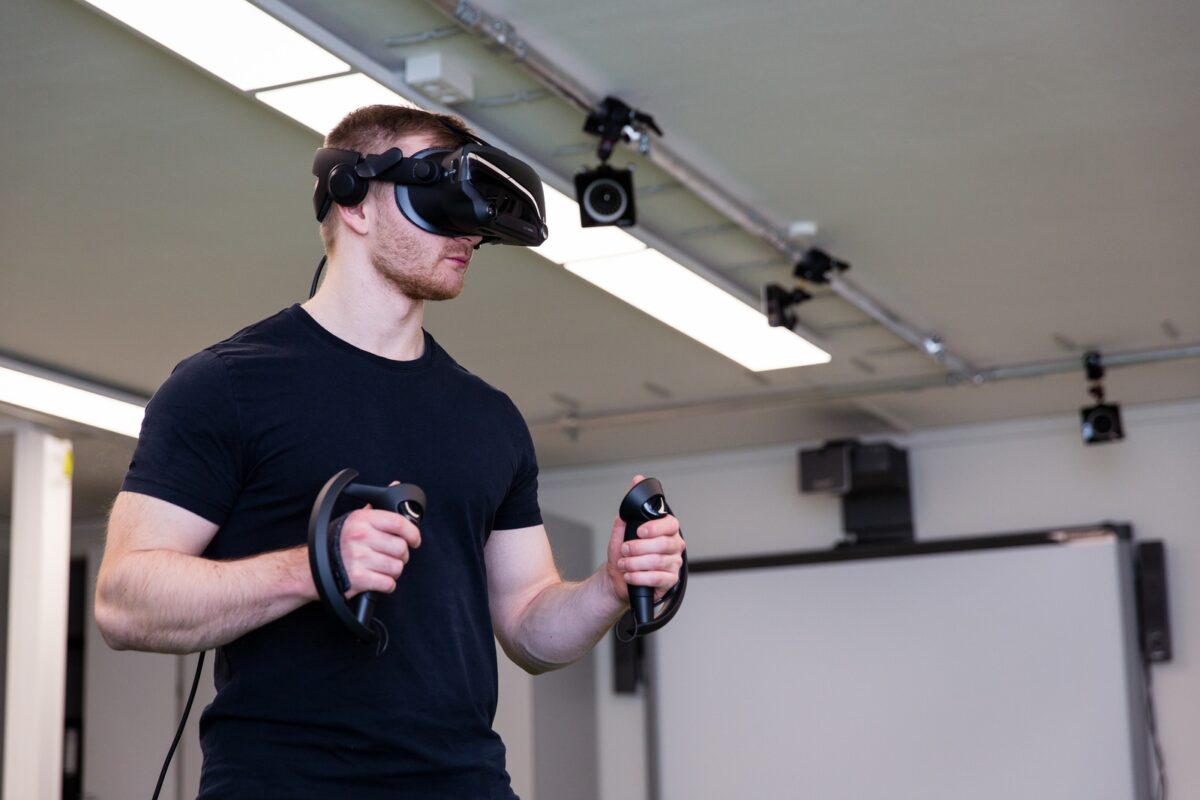Virtual reality (VR) offers great potential for the individualization of teaching and learning processes in physical education. / Photo: Osnabrück University / Karsten Keller
A new project at Osnabrück University is introducing potential teachers to the use of new technologies in physical education. Using the example of virtual reality, students learn to conduct their own application-oriented research from the lab to exercise.
Experimenting and learning new movements is a primary goal of physical education. Designing lessons according to individual student requirements and needs and designing learning processes accordingly remains a major challenge for teachers due to the heterogeneous conditions of school sport to this day. The project “Teaching and Learning Movements in and with Virtual Reality (VR)” introduces potential sports teachers at the University of Osnabrück to this future mission in the age of digitalisation. The Ministry of Science and Culture in Lower Saxony is funding this teaching and learning concept with €47,300 as part of the ‘Extra Innovation’ programme.
Project Objective
The project manager, junior professor, Dr. Cornelia Frank from the Institute of Sport and Kinesiology explains: “The goal of our project is for aspiring physical education teachers to be able to use the example of virtual reality reflected in new technologies when teaching and learning about movement in physical education.”
The project team, led by Junior Professor Frank, will partially redesign, implement, and evaluate the ‘Introduction to Movement Science and Training’ module over the course of one year as part of an event. Students experience practical relevance not only by reading the literature on virtual reality and movement learning, but also by doing research in the lab and doing this research for application in their own sports practice.
Investigating new teaching and learning concepts for physical education
“Because students can be immersed in virtual worlds, VR can first be experienced as part of their learning process, and secondly, for a potential application of VR in teaching and learning contexts, this can be specifically reflected,” explains Frank, who has been working on virtual reality. For several years now, he has been researching teaching and learning in virtual reality. In this way, the project contributes not only to digitization in the training of sports teachers, but also aims to improve future teaching activities, supported by new technologies.
How do you rate this product?

“Certified gamer. Problem solver. Internet enthusiast. Twitter scholar. Infuriatingly humble alcohol geek. Tv guru.”





